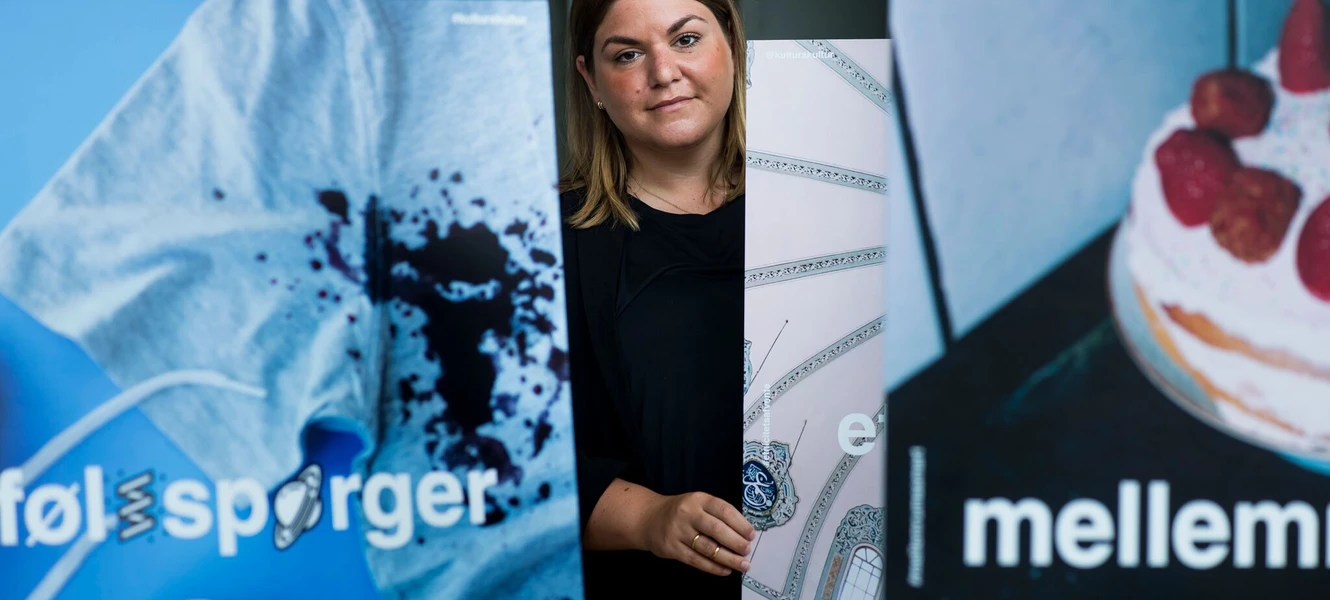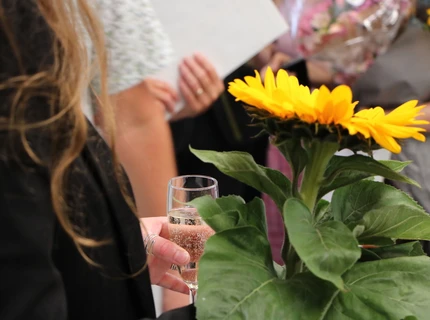
Hyphen Dane wants to make young people space smarter
The result is a more positive way of talking about cultural differences – or, in Zine’s words, make a good spreader.
‘Where do you come from?’
This was the question people used to ask Zine’s Kurdish father over and over right through her childhood. Some days he answered Kurdistan, other days Denmark, and once in a while just Gentofte (a suburb of Copenhagen). But the question always arose in the meeting with new people, and it still arises.
”The little question about origin encompasses an incredible number of problems. People ask out of curiosity and because they want to hear more about one’s roots, history and culture. But at the same time the formulation implies that ‘you are not really from here’. I would like to create a greater awareness about the issue and maybe shake up people’s perception of nationality and affiliations. This could make us far better at including the young hyphen Danes in our society,” says Zine Yolal.
“If for example we ask, ‘how do you actually feel about being asked where you come from?’ that starts a completely different dialogue. And undoubtedly the answer will be much more nuanced. This is the field I have tried to expand.”
Positive thinking, no finger pointing
From an academic perspective Zine Yolal has worked in two fields. One is the creation of a social design project that could start a dialogue and discussion about cultural diversity hence promoting social inclusion. Secondly the project could challenge the very notion of nationality and make it a more open concept.
“Cultural encounters are an incredibly sensitive subject, and in no way do I want to point fingers, moralise or impose my ideas on others,” says the young designer.
“That’s why I work from a foundation of positive design that takes its starting point in the motivations and values that encourage the individual to effect change.” Zine Yolal made extensive preparations to identify exactly what mechanisms have to be in play in order to make cultural encounters more pleasant for both parties in a conversation. Interviews with 12 hyphen Danes and 12 young Danes and also with five experts in cultural issues all helped provide the building blocks for the final product.
The personal stories
“There are a lot of tools in the toolbox for dialogue that has now been created. There are a number of posters and postcards presenting the 10 new words that are meant to verbalise the problems for example at institutions of higher education,” says Zine Yolal. She has also created a new digital universe where young hyphen Danes are in charge of having their voice heard. For example, in order the break the cultural ice she presents a new set emojis. They are a mixture of Middle Eastern and Danish emojis that visualise the reality the young hyphen Danes live in. The 10 new words have been made as snap chat filters so that young people can easily and quickly share their experiences about the cultural encounter on social media.
”As a communication designer I am fascinated by the personal story,” she says referring to the digital part of the project. “The personal story that can be told on social media is an effective tool, for it is able to create relationships and connection between sender and receiver. That is why I want the hyphen Danes themselves to contribute actively to a change in the perception of nationalism. In other words the minority must join the fight and define themselves rather than be defined by others.”
Do you want to debunk the concept?
Then you may have to ask sensitively. Among Zine Yolal’s end products are 10 new words created in order to find new ways of talking about national identity.
HYPHEN DANE
Person living in Denmark but who has roots in another country, since immigration took place within the last couple of generations, e.g. Danish-Turkish or Danish-Arab.
CONCEPT DEBUNKTION
Intentionally rejecting words such as new Danes, Pakis or other terms that contribute to a reduced sense of belonging among the hyphen Danes.
CULTURE HUNGRY
Actively indicating that you are asking questions about a person’s cultural background because you find it interesting.
ASKING SENTITIVELY
Rather than directly asking ’where do you come from?’ the question is, ’how do you feel being asked about where you come from?’
RELIGION DROPPING
Not automatically assume that hyphen Danes are Muslims when they have not indicated it themselves. For example if a hyphen Danes consumes a bag of pork rinds it is OK to religion drop him or her.
A GOOD SPREADER
An act in which you consciously focus on spreading and tell positive stories about hyphen Danes.
ETHNICITY DELAY
Delaying asking questions about a person’s ethnicity or cultural background until he/she herself mentions it.
BIAS REMOVER
A person who establishes a personal relationship with hyphen Danes in order to break own stereotypes.
BACKGROUND CAUTIOUS
Asking a person if he has roots in another culture rather than asking ’where do you come from?’
SPACE SMART
Appreciating that a person can come from the space between cultures.
““In no way do I want to point fingers, moralise or impose my ideas on others.” Zine Yolal, communication designer”


